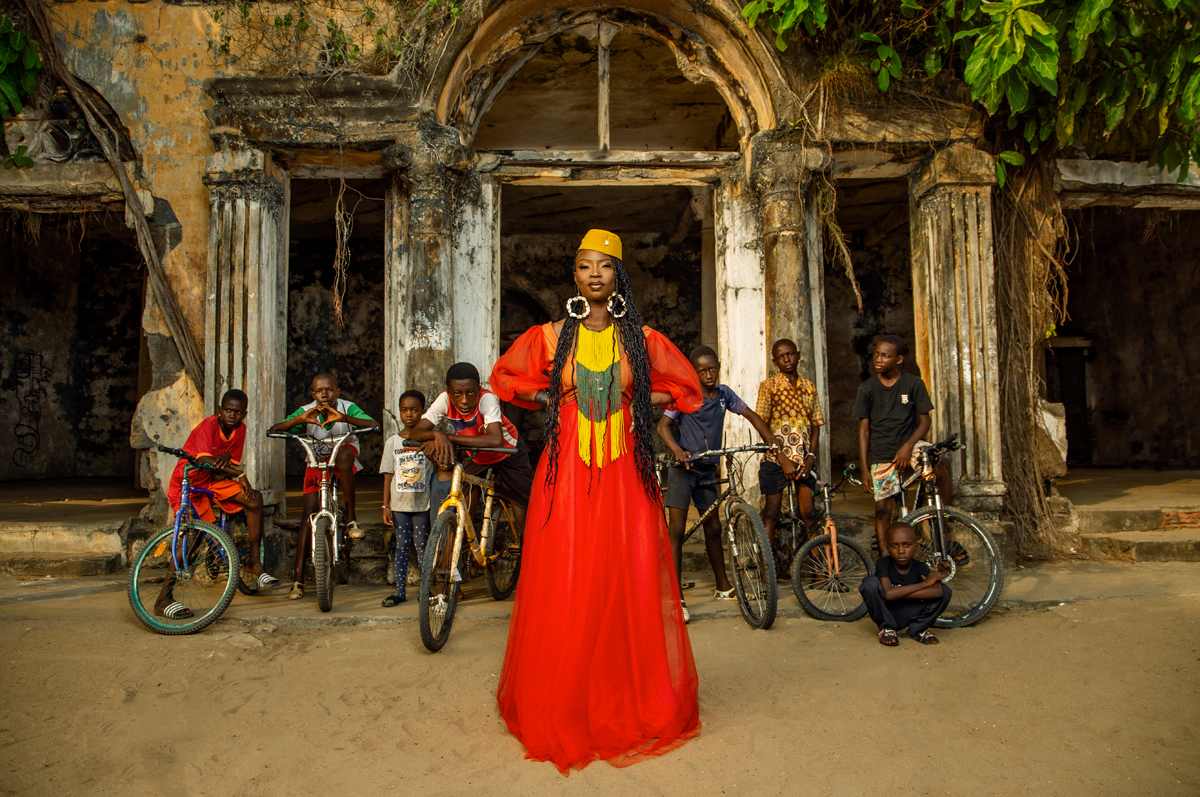
GRAMMY winner Dobet Gnahoré was born in Abidjan, Côte d’Ivoire, to a musical family. Her father, Boni Gnahoré, was a percussionist and a founding member of the renowned Ivorian cultural organization, Ki-Yi M’Bock. Dobet’s training began at her father’s dance and theater school, Ki-Yi M’Bock, where she learned various African musical traditions, including dance and percussion. This comprehensive training helped her develop a deep appreciation for African cultural heritage and artistic expression. Growing up in an environment rich in musical traditions and creativity, Dobet was exposed to various forms of art, including dance and theater, from a young age.
In her teens, Dobet started performing with Ki-Yi M’Bock and began her career as a professional artist. Her performances, characterized by energetic dance routines, intricate rhythms, and soulful singing, quickly drew attention both locally and internationally. Dobet’s music is a vibrant blend of traditional African rhythms and contemporary styles. She sings in various African languages, but recently has written mostly in the Bété language, one of the many regional languages of Côte d’Ivoire. Her powerful voice and stage presence are complemented by her mastery of many traditional African instruments.
Dobet’s work is influenced by her desire to promote African cultural heritage and address social issues such as gender equality, poverty, and environmental sustainability. Her lyrics often touch on themes of empowerment, resilience, and unity.
Dobet Gnahoré’s breakthrough came with the release of her debut album, Ano Neko, in 2004. The album showcased her versatility and ability to merge traditional and contemporary sounds. This success led to invitations to perform at prestigious international festivals and venues.
In 2010, Dobet earned further renown when her collaboration with American singer India.Arie on the song “Pearls” earned them a GRAMMY win for Best Urban/Alternative Performance. That same year, the UK’s Guardian newspaper crowned her with the “best performance” accolade at the prestigious WOMAD festival.
Dobet is known for her commitment to advocacy and humanitarian causes. She uses her platform to promote women’s rights and empowerment, particularly in Africa. She supports various initiatives aimed at providing education and opportunities for women and girls. Her music often serves as a voice for marginalized communities, highlighting their struggles and triumphs. Dobet’s efforts extend beyond the stage, as she actively participates in campaigns and projects that promote social justice and equality.
In recent years, Dobet Gnahoré has continued to release music and perform worldwide. Dobet’s contributions to African music and culture have solidified her status as a leading figure in the industry. Her work continues to inspire artists and audiences alike, and her commitment to advocacy ensures that her impact extends beyond the world of music.
Zouzou, which means “Angel” in French, is Dobet Gnahoré’s sixth studio album and a vibrant celebration of African culture and identity released on June 28th, 2024. Zouzou presents a rich tapestry of musical traditions, combining African rhythms with modern influences and lyrical depth. Motivated by the struggles facing African children, Dobet Gnahoré, had dedicated this album to the youth that will define the future of the continent. The album serves as the launch of a new orphanage project Gnahoré is developing in Côte d’Ivoire, and affirms her commitment to promoting positive change and opportunities for the next generation.